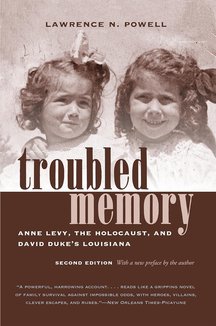Recommended Books

Democracy in America
Authors:
Alexis de Tocqueville
,
Harvey C. Mansfield
,
Delba Winthrop
ISBN 13:
978-0226805368
The most faithful and nuanced translation of the definitive work for understanding America Alexis de Tocqueville (1805-59) came to America in 1831 to see what a great republic was like. What struck him most was the country's equality of conditions, its democracy . The book he wrote on his return to France, Democracy in America , is both the best ever written on democracy and the best ever written on America. It remains the most often quoted book about the United States, not only because it has something to interest and please everyone, but also because it has something to teach everyone. When it was published in 2000, Harvey Mansfield and Delba Winthrop's new translation of Democracy in America —only the third since the original two-volume work was published in 1835 and 1840—was lauded in all quarters as the finest and most definitive edition of Tocqueville's classic thus far. Mansfield and Winthrop have restored the nuances of Tocqueville's language, with the expressed goal "to convey Tocqueville's thought as he held it rather than to restate it in comparable terms of today." The result is a translation with minimal interpretation, but with impeccable annotations of unfamiliar references and a masterful introduction placing the work and its author in the broader contexts of political philosophy and statesmanship.

From the War on Poverty to the War on Crime: The Making of Mass Incarceration in America
Author:
Elizabeth Hinton Associate Professor of History and African American Studies and Professor of Law
ISBN 13:
978-0674979826
Co-Winner of the Thomas J. Wilson Memorial Prize A New York Times Notable Book of the Year A New York Times Book Review Editors’ Choice A Wall Street Journal Favorite Book of the Year A Choice Outstanding Academic Title of the Year A Publishers Weekly Favorite Book of the Year In the United States today, one in every thirty-one adults is under some form of penal control, including one in eleven African American men. How did the “land of the free” become the home of the world’s largest prison system? Challenging the belief that America’s prison problem originated with the Reagan administration’s War on Drugs, Elizabeth Hinton traces the rise of mass incarceration to an ironic source: the social welfare programs of Lyndon Johnson’s Great Society at the height of the civil rights era. “An extraordinary and important new book.” ―Jill Lepore, New Yorker “Hinton’s book is more than an argument; it is a revelation…There are moments that will make your skin crawl…This is history, but the implications for today are striking. Readers will learn how the militarization of the police that we’ve witnessed in Ferguson and elsewhere had roots in the 1960s.” ―Imani Perry, New York Times Book Review

Troubled Memory, Second Edition: Anne Levy, the Holocaust, and David Duke's Louisiana
Author:
Lawrence N. Powell
ISBN 13:
978-1469651866
This powerful book tells the story of Anne Skorecki Levy, a Holocaust survivor who transformed the horrors of her childhood into a passionate mission to defeat the political menace of reputed neo-Nazi and Ku Klux Klan leader David Duke. The first book to connect the prewar and wartime experiences of Jewish survivors to the lives they subsequently made for themselves in the United States, Troubled Memory is also a dramatic testament to how the experiences of survivors as new Americans spurred their willingness to bear witness. Perhaps the only family to survive the liquidation of the Warsaw Ghetto as a group, the Skoreckis evaded deportation to Treblinka by posing as Aryans. The family eventually made their way to New Orleans, where they became part of a vibrant Jewish community. Lawrence Powell traces their dramatic odyssey and explores the events that eventually triggered Anne Skorecki Levy's brave decision to honor the suffering of the past by confronting the recurring specter of racist hatred.